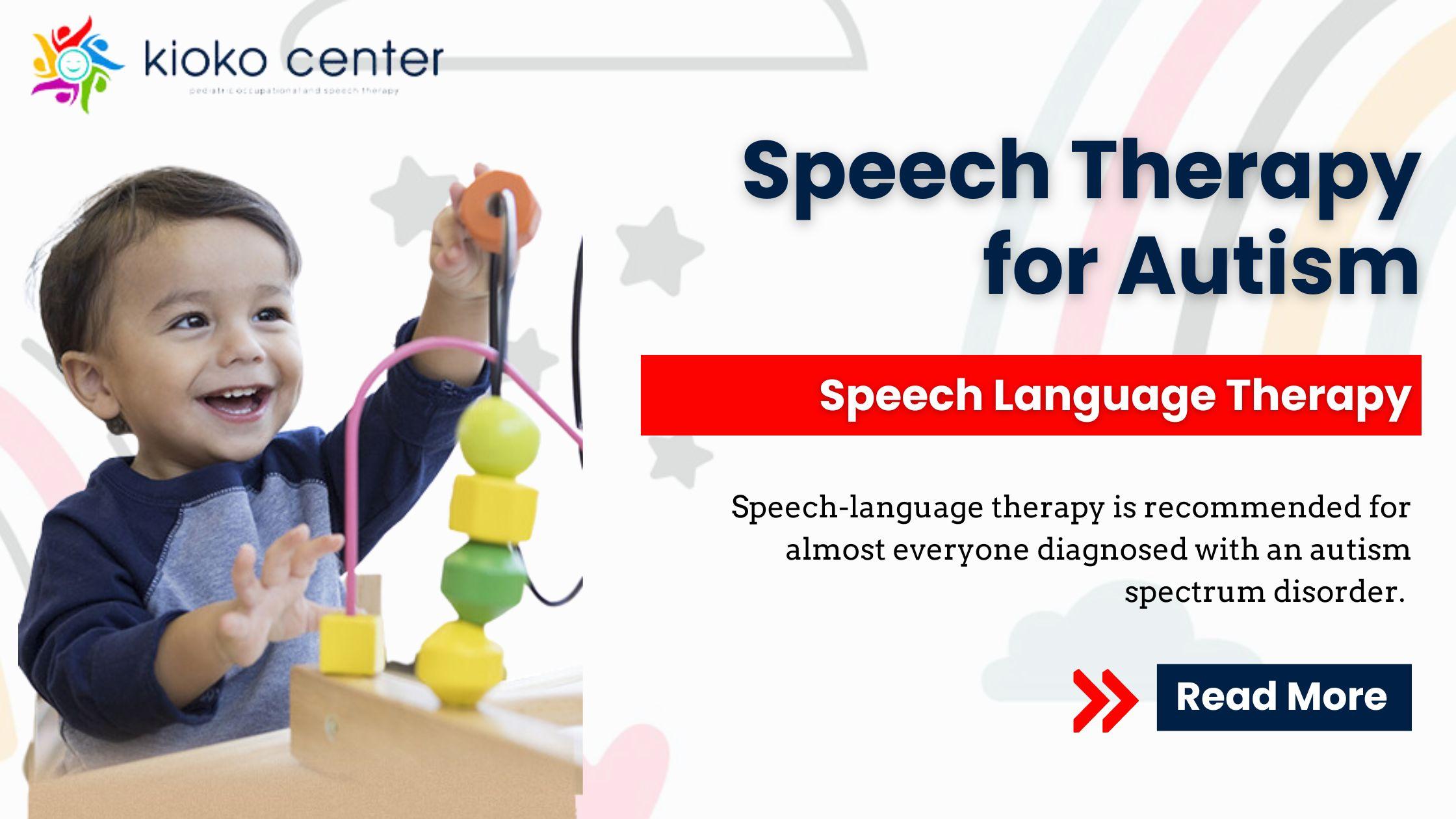Speech Therapy for Autism

Speech-language therapy is recommended for almost everyone diagnosed with an autism spectrum disorder. This makes sense because most children with autism have impaired communication that requires assistance. Even those with high-functioning autism can benefit from speech-language therapy.
What is Speech-language Therapy?
Speech therapy treats speech and communication disorders; thus, it is a broad field. Speech therapy may assist children with stuttering or lisps in accurately pronouncing words. Speech therapy also helps children with developmental disabilities understand and use spoken language in a social environment.
A certified speech-language pathologist (SLP) is a communication specialist who must have a master’s degree. That professional may work in a private setting, a clinic, a school, or an institution, or as part of an educational team. They employ various tools and therapies, including toys and play-like treatment, as well as formal tests and speech curriculum.
Does Speech Therapy Help Autism?
Autism spectrum disorder is most commonly identified in early childhood, while communication abilities are still developing. To varying degrees, the condition makes it difficult for children to communicate. Some children may not speak or have limited speaking ability, while others communicate deeply about specific topics.
According to studies, two out of three children with autism improve their communication abilities and understanding of spoken language when identified early and receive appropriate treatment. According to research, those who receive ongoing speech treatment are more likely to progress
Speech therapy can help children with autism improve their spoken language, enhance nonverbal abilities, and learn to communicate in new ways. SLPs can teach parents how to enhance their child’s communication skills in various ways suited to the child’s abilities, communication situations, and family requirements.
For children with ASD, there are a variety of evidence-based treatment options, including Augmentative and Alternative Communication (AAC), activity schedules/visual supports, computer-assisted learning, video-based instruction, behavioral interventions, cognitive behavioral therapy, play-based interventions, social communication/social skills interventions, literacy interventions, relationship-based interventions, parent-implemented interventions, and coaching and routines-based intervention.
Online Speech Therapy for Autism
Speech and language therapy is essential for children with ASD so that they may reach their potential. Speech-language therapy can be delivered to these children in person or online.
However, it is crucial to highlight several advantages to delivering this service online since teletherapy provides opportunities that are not available with in-person therapy. Families can ensure a favorable outcome with online speech therapy by considering the following factors:
Speech Therapy Activities for Autism at Home
Children with autism experience speech and language impairments that range from mild social language impairment to entirely non-verbal. With that in mind, here are some speech therapy approaches available that your child’s SLP may teach you so that you can continue to work with your child at home.
Final Thoughts
To summarize, speech therapy for children with autism provides a means to improve their communication skills. Families can get treatment for their children either in person or online. When looking for treatment, make sure you identify a speech-language pathologist (SLP) who is licensed, ASHA certified, and has experience with children on the autism spectrum. Your child’s SLP will work with you on developing an individualized plan to improve your child’s communication.
- Art
- Causes
- Crafts
- Dance
- Drinks
- Film
- Fitness
- Food
- Oyunlar
- Gardening
- Health
- Home
- Literature
- Music
- Networking
- Other
- Party
- Religion
- Shopping
- Sports
- Theater
- Wellness
- IT, Cloud, Software and Technology


